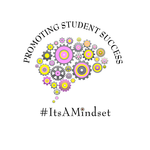
2017 Annual Conference
November 8–10, 2017
Jekyll Island Convention Center, Jekyll Island, GA
Lesson Design for School Counselors: Make Your Lessons EPIC!
Presenter Name(s)
Dr. Susan Ripple, Visiting Assistant Professor
Dawn Mann, 2017 Finalist, ASCA National School Counselor of the Year
Target Audience
Middle
Secondary
Independent
Abstract
Implementing an effective counseling core curriculum requires school counselors to develop quality lessons – lessons that are experiential, participatory, image-rich, and connected (EPIC). Thus, this interactive session will provide both veteran and novice school counselors with a model for developing counseling lessons that are more engaging and effective. Participants will walk away with practical ideas that can be implemented immediately in their school counseling programs.
Description
“We must learn to evaluate our work critically. Teaching does not happen in the absence of learning. So, the harsh reality is this: if your students haven’t learned it, then it means you haven’t taught it – period!” ~ Dr. Shirley Haley-James
Whereas school counselors are charged with designing and delivering engaging classroom lessons, variability in three key factors impacts the quality of counseling core curriculum lessons:
- The counselor’s level of expertise in lesson design
- The counselor’s confidence and utility in the classroom
- The counselor’s access to students in the classroom.
Simply put, school counselors’ time in the classroom is precious; therefore, it is imperative we maximize it by designing creative, high-impact lessons that make the learning stick! Rather than focusing on parlaying information to our students, counselors must consider how to engage students more deeply in the learning. Consequently, we must define more explicitly what it means to develop data-driven, student-centered, and relevant lessons.
Thus, the presenters will: 1) define the elements of an effective lesson; 2) demonstrate effective and engaging lessons/activities; 3) provide participants the opportunity to work on a sample lesson.
It is important to note that the framework for the presentation lies in the work of Tim Elmore, who describes effective lessons as EPIC:
E Lessons must be experiential in nature: they must be framed within the context of personal experiences – students’ experiences, your own, or even the experiences of others.
P Lessons must be participatory: we must invite students to engage in the learning by presenting them with a conflict, problem, or issue, and then enlisting their assistance for resolving it.
I Lessons must be image-rich: we create focus in the lesson and ground students’ learning by attaching an enduring image to the central message or theme in a lesson. This central image can include analogies or physical images, but it also could mean creating what Elmore calls “narra-phors” in which to embed new knowledge.
C Lessons must be connected: students must be given the opportunity to connect with each other and to develop solutions to complex problems.